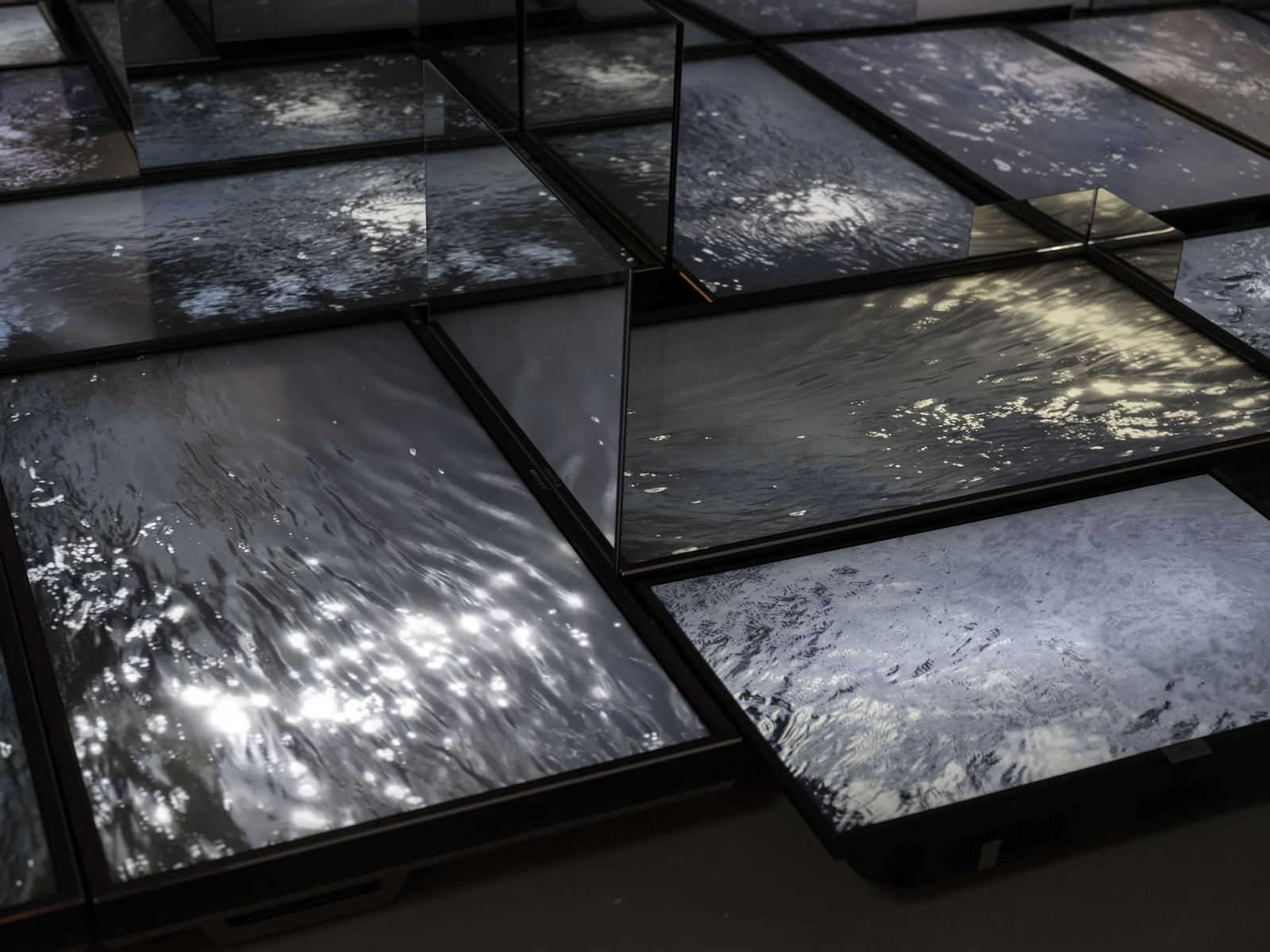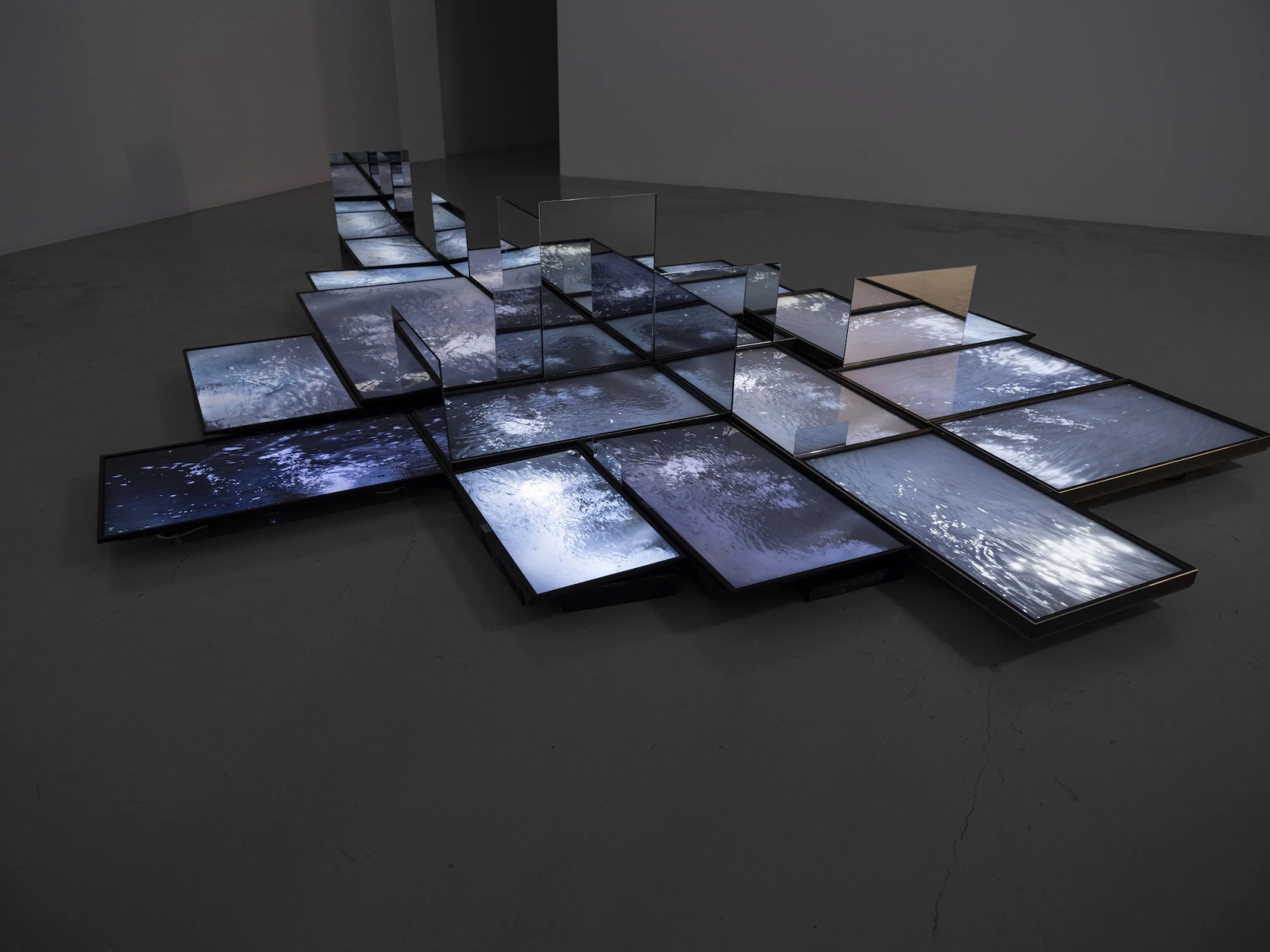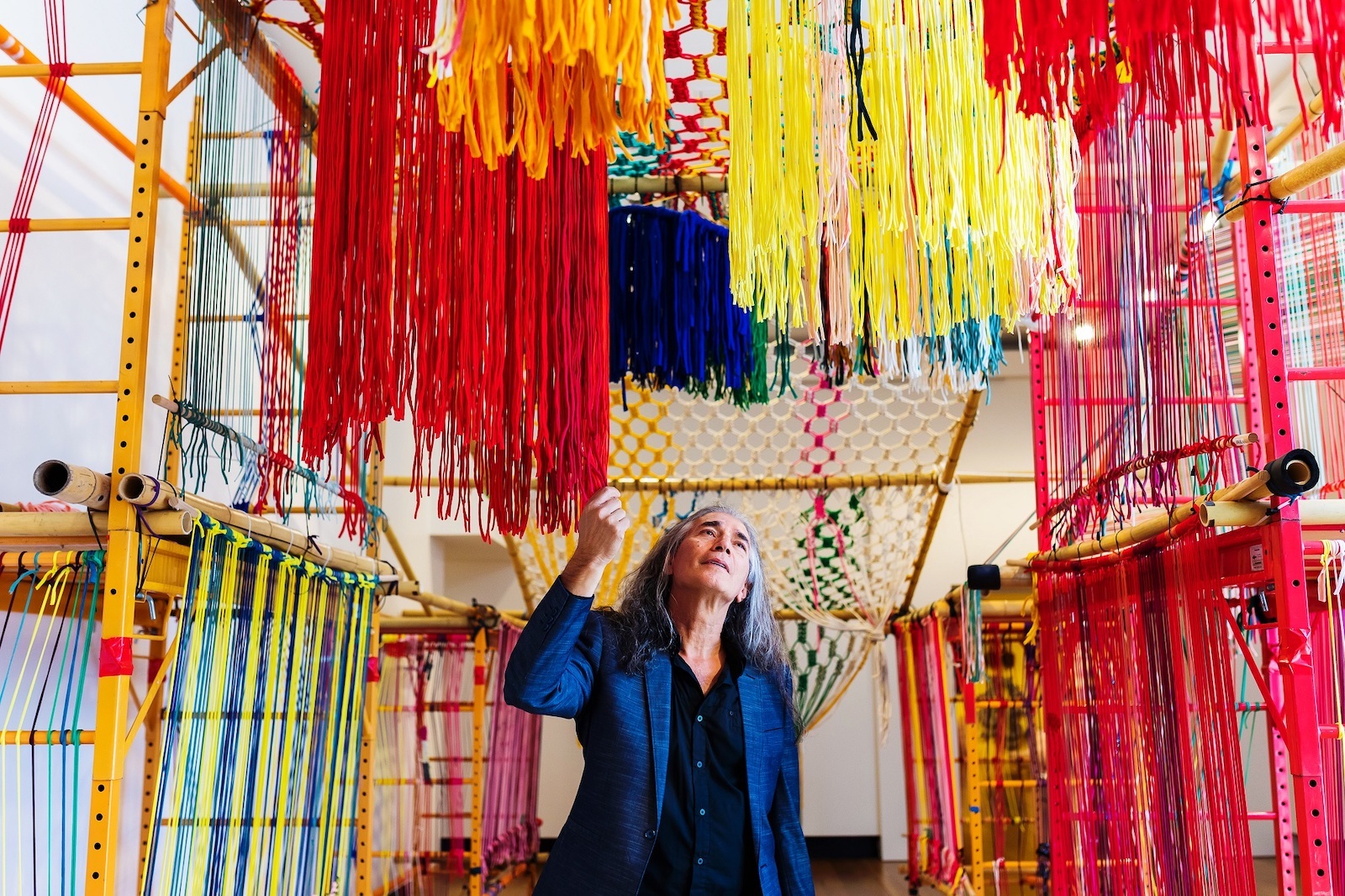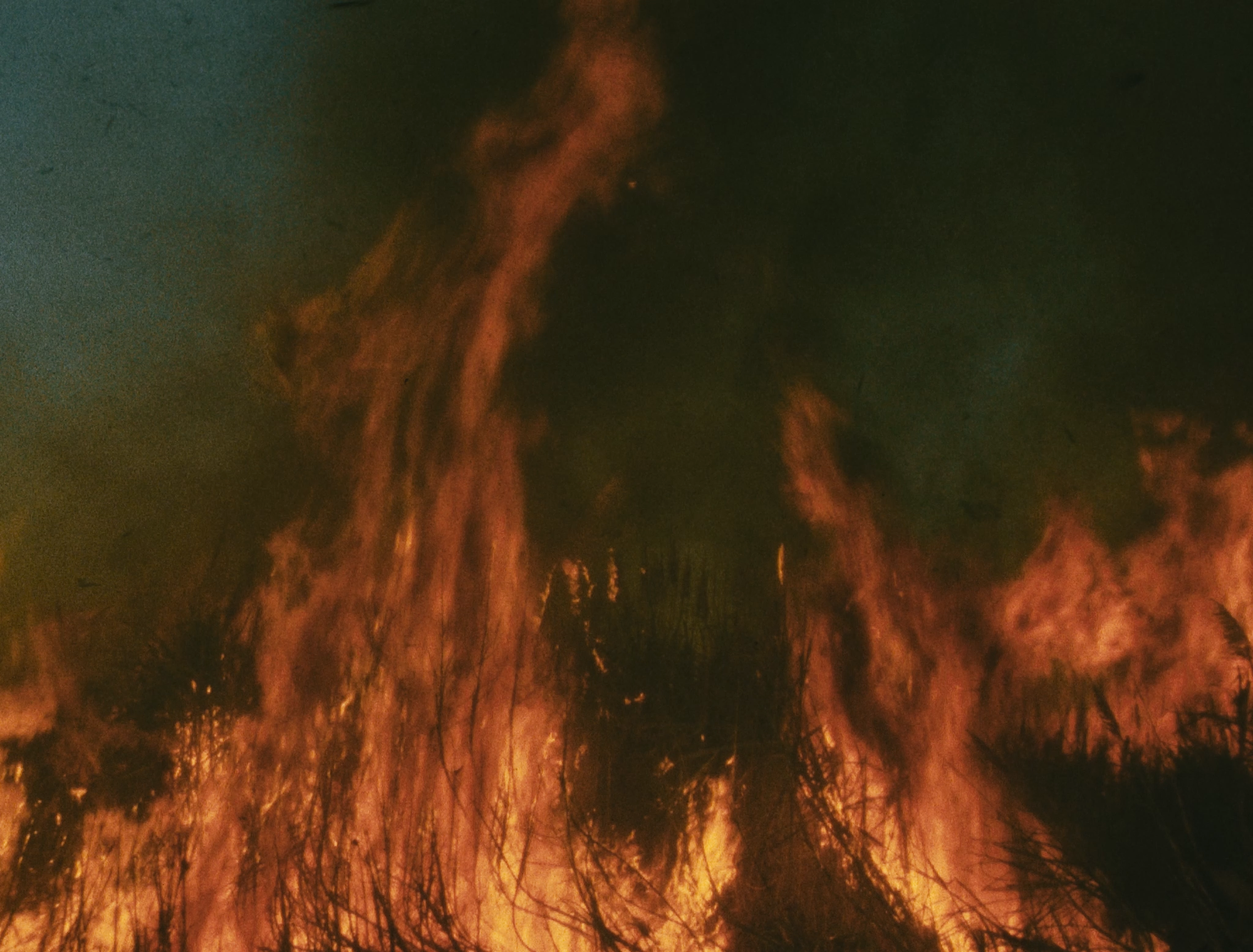childlike wonder / the living room
One night when I was a child about 4 or 5 years old, I awoke in the early hours, grappling my way through the dark to use the bathroom. On my way back to bed, I caught a glimpse of a little pond of light in the living room. I knelt down beside it and traced its path back to the source. My eyes caught the moon slithering through the curtains, casting its line. I returned my eyes to its landing place, and carefully cupped the pooled light between my palms, and carried it back to bed.
I lay awake, the light held at my chest, yet unopened. Once I had energetically landed again, I took a breath. On exhale I opened my hands upward, releasing the light like a thousand fireflies. What I saw were fairies. Fluttering. Divine. A fountaining cup of moonshine. I was drunk before I knew what drunk was. Drunk on my own mind.
water block, as in Minecraft. water block as in stopping yourself from crying.
Ross Manning’s exhibition Matter & Matrix opens with a series of Spectral Pools. Each with its own wall. Each work lights its own world. Each a solid, stand-alone meal. Worlds unfurling for and of you, as you walk into them. Becoming part of them. Catching yourself, or another self, looking through, walking alongside you. Alternately floating in and out of focus. Integrated batten lights frame the reflective surface of diffusion grading film, echoing vanity mirrors in green rooms. Warm up. Backstage. Made up.
This fluid access into malleable realities plays again in act two . . .
The next room contains 13 televisions, mirrors on mirrors. In each plane is another plane, refracted, fractured. Cells born of cells. Birthplace of worlds. Reality is duplicated, mutated, shimmering. Linearity: disassembled. Logic: deviant. Blink and we’ve switched. Gravity glitched.
The fluid, photographic plane awakens us to the constructed and therefore malleable nature of perception. A frame is a question mark, is an invitation to find “fissures in the social and cultural algorithm.”2
What do we choose to tune into? That night when I fished the light, I chose magic. I scooped it up and elevated it, just as Ross notices the common glimmer, and listens to it. He empowers it until it floats. Ross gives a glimmer a body. A ray is a realm. It takes a childlike wonder to tune into ever present frequencies that often go ignored. It takes a beginner’s mind, hungry, listening.
It takes going beyond a surface.
When I was first viewing the Spectral Pool works, a friend asked me if I too could see how the light/colours form an illusory 3D pool, a holographic cloud that haloes out. I said, “I can . . . but I’m not sure how much I want to lean into that, how much I want to let that happen.” And what I meant was: I’m not sure how drunk I can let myself get, I’m not sure how vulnerable I can let myself be. I’m not sure how far, while people are around, I can let myself sink into these works. I’ll cry. I could feel it. Those pools reminded me of something magical, something ridiculous. They reminded me of a time when my life felt like a Ross Manning work. Pooling light, colours colliding, opening, and me believing, everyday, in a conscious way, in something unexplainable. Is it the illusory shadows or the daylight shimmers that are more magical, truthful?
weeping wonder / the crying room
Luckily, this gallery has a crying room. Well, there is a perfect little place to hide and cry in The Alcove, where Ross has aptly placed his work, Weeping Window. The kinetic sculpture uses bamboo blinds to isolate an everyday optical illusion. Ross has evidently spent time listening to the space. It and the work speak so fluidly, as if one belongs with the other, as if they were born together. This I appreciate, and is something that is not often satisfied for me in galleries.
If you visit, give yourself time to tune in. Give the exhibition time to alter you. Once you leave, you may find you have a weeping window in your living room. I promise I’ll return too, alone to the alcove, to let my eyes glaze through to the other side, to let myself weep with wonder.
1. Russell, “Glitch survives,” 149.
katnancy reads, writes and collects light.







